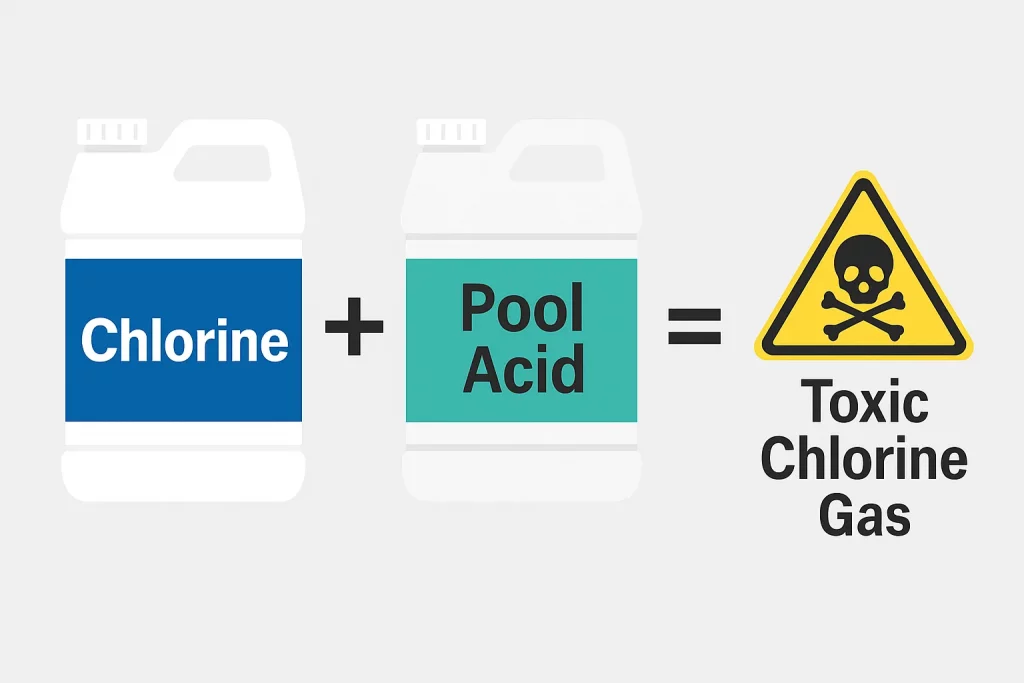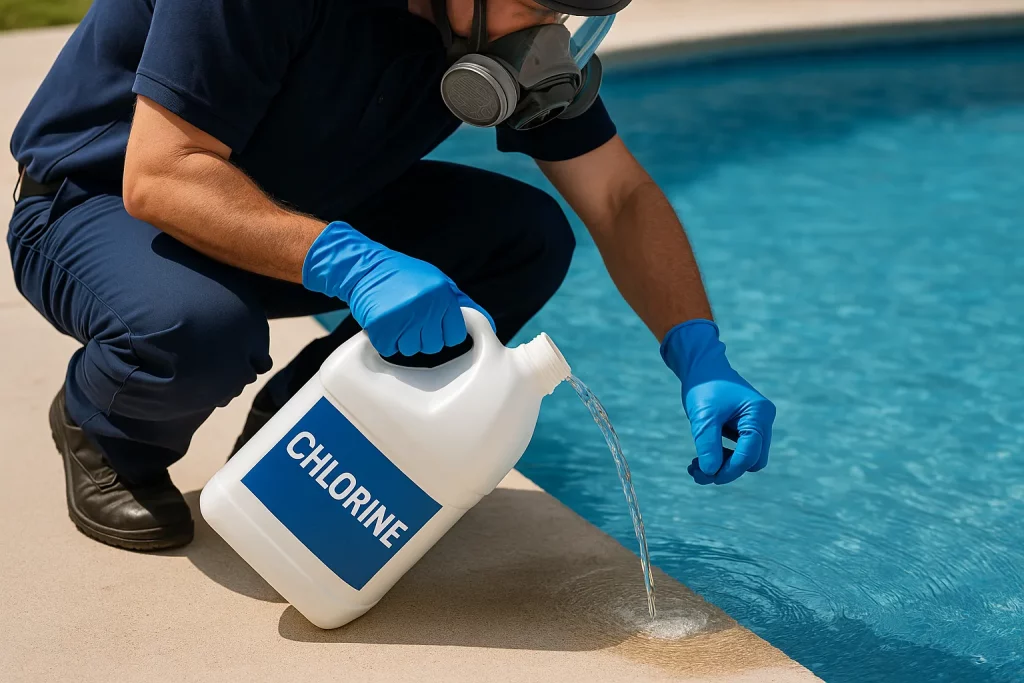Understanding chemical mixing guidelines is essential for anyone who manages, maintains, or owns a swimming pool. Whether you’re a homeowner attempting DIY care or a professional service provider, improper chemical mixing can lead to dangerous reactions, equipment damage, or ineffective water treatment.
This guide from M&M Pool & Spa Services outlines essential practices for compliant and safe pool chemical handling, including chemical compatibility, proper mixing order, and crucial safety precautions. By following these guidelines, especially under South Florida’s unique climate conditions, you can keep your pool sanitized, balanced, and safe for swimmers year-round.
Pool care involves a combination of several chemicals—chlorine, algaecides, pH adjusters, shock treatments, and more. Mixing these treatments incorrectly or without awareness of their interactions can result in explosive reactions, severe fumes, skin irritation, or reduced effectiveness of the chemicals themselves.
That’s why adhering to tested chemical mixing guidelines isn’t just best practice—it’s essential for safety, health, and efficiency in pool maintenance.

Before mixing chemicals, always check the chemical compatibility chart provided by the manufacturer. Some chemicals should never be stored or mixed together due to reactive properties. For instance:
Never assume two pool chemicals can be mixed just because they serve similar purposes. Always defer to the safety data sheets (SDS) and manufacturer guidelines.
Establishing the proper mixing order ensures each pool chemical activates effectively without counteracting others. Here’s a general guideline:
Always circulate the water (via pump and filter system) between each step for optimal distribution. Never pour chemicals directly on top of each other, and always dilute granular/powdered chemicals before adding them to the pool.
At M&M Pool & Spa Services, safety is our top priority. Whether our techs are servicing clients across Miami-Dade or homeowners are maintaining their own pools, these safety precautions remain the gold standard:
Learn More: Best Practices for Safe Pool Chemical Storage

Living in South Florida, especially areas like Miami-Dade County, poses unique challenges for pool chemical management.
The region’s intense sun, high humidity, and rainfall can alter chemical levels rapidly, requiring more frequent adjustment, careful chemical compatibility assessments, and modified mixing orders.
M&M Pool & Spa Services provides expert pool chemical management across Miami-Dade and surrounding South Florida areas, ensuring local weather patterns don’t compromise your pool’s safety and clarity.
Trust our certified technicians to monitor pool chemistry, apply treatments in the correct mixing order, and maintain strict safety precautions using industry-approved chemical mixing guidelines.
Mismanagement of pool chemicals can be dangerous. If you’re unsure about proper mixing or chemical compatibility, it’s best to leave it to the experts. At M&M Pool & Spa Services, we offer pool maintenance packages that take all the guesswork out of balancing your pool year-round—especially in Miami-Dade’s challenging climate.
Contact us today through our website to schedule a consultation or weekly service. Stay safe and swim confidently knowing your pool is maintained with expert knowledge and the highest safety standards.
For reliable, professional pool chemical services in South Florida, trust the team at M&M Pool & Spa Services—your trusted local pool care specialists in Miami-Dade and beyond.
Frequently Asked Questions
Mixing pool chemicals—especially chlorine and acids—can create dangerous gases, toxic fumes, or even explosions. Each chemical has a specific function and must be added separately to water to prevent chemical reactions that pose health and safety risks.
To avoid interference or neutralization, the safe mixing order is generally:
Always add chemicals to water—never the reverse. Adding water to certain dry or concentrated chemicals can cause a sudden reaction, bubbling, or splashing that can lead to serious injury.
No. Mixing different chlorine types (e.g., trichlor tablets with calcium hypochlorite) can result in a violent reaction or fire. Store and use them separately as directed by product guidelines.
For safe handling, you should wear:
Work in a well-ventilated area and avoid inhaling fumes.
Yes, some chemicals like calcium chloride or certain types of shock should be pre-dissolved in a clean bucket before adding them to the pool. Always use cold water and stir with a non-metallic stick or spoon.
Yes. High temperatures and humidity can:
Improper mixing can lead to:
Always follow a written procedure or hire professionals like MM Pool & Spa Services Corp. to handle chemical dosing safely.